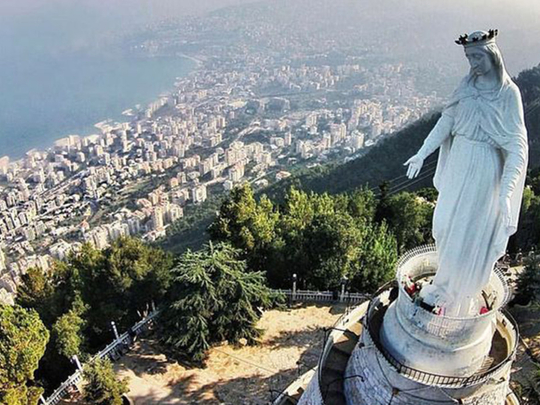
Beirut: Recent land disputes in Lebanon’s Jbeil district, just north of Beirut, are focusing attention on underlying demographic fears in the country, particularly of Christians.
Christian-majority Jbeil, which also has a minority of Shiite residents, was largely spared from sectarian clashes during Lebanon’s civil war between 1975-1990.
But recent moves by Shiites to build homes and a mosque in the Lasa neighbourhood is threatening to ignite sectarian tensions.
On Sunday, Finance Minister Ali Hasan Khalil and March 14 secretary-general Fares Soueid traded barbs over recent government land surveys in the Aqoura and Lasa neighbourhoods of Jbeil.
Khalil dismissed Soueid’s claim that the surveys had the hidden motive of appropriating land that belonged to the Maronite Church.
Khalil said that his efforts to conduct the surveys aim to restore government control on property illegally seized by politicians or sectarian groups.
He promised that anyone involved in stealing state land, “even as much as one square metre”, will be held accountable.
But a few days ago, during an attempt to conduct land surveys in Aqoura, tensions flared between inspectors and local authorities.
Authorites refused to let the inspectors on to the land and tensions soared when they were removed by Internal Security Forces.
There were no casualties but the finance ministry personnel finally withdrew due to mounting tension.
An embarrassed Khalil claimed that the survey in Aqoura was not authorised and affirmed the land did not belong to the state.
Meanwhile, the Maronite Church and the Higher Shiite Islamic Council formed a joint committee to resolve the recent land disputes in Aqoura and Lasa.
Khalil’s latest statements have “created a feeling among us that there is a decision being hatched against private property in Lasa and public property in Aqoura and other towns”, Soueid said.
Land ownership is an existential matter in Lebanon, especially when it involves ethnic or sectarian exchanges, which quickly take on metaphysical dimensions.
Mount Lebanon communities in particular are sensitive to any land sold because Church officials fear that demographic changes — led by the flight of Christians — will permanently harm them.












